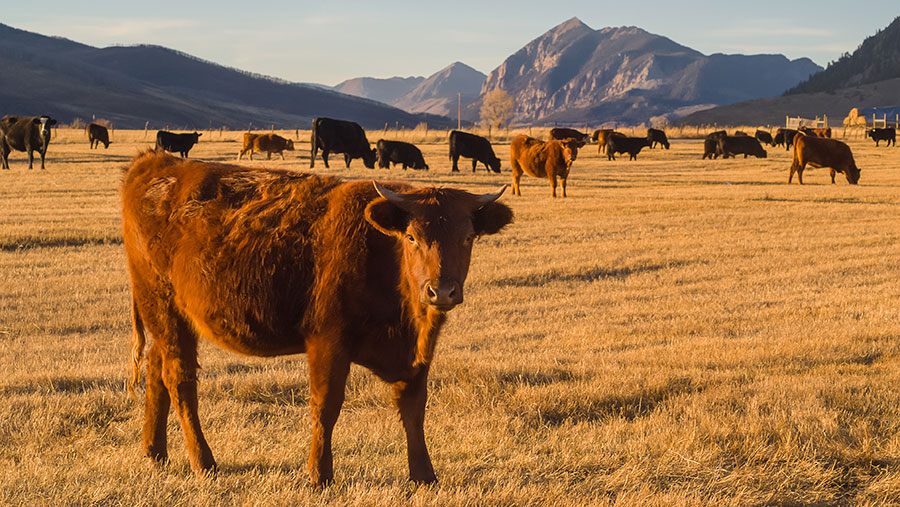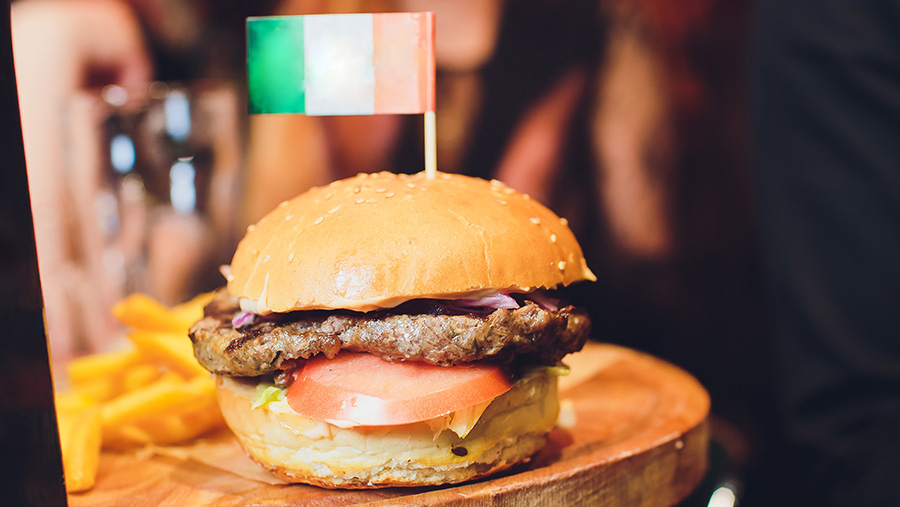Climate change impact must be part of trade rules, says US trade counsel
 © cbdusty/Adobe Stock
© cbdusty/Adobe Stock A new system of trade regulation is needed to ensure that environmental protection, as well as food safety, is properly accounted for in future trade deals, according to US trade counsel Jason Hafemeister.
Addressing the Oxford Farming Conference on Thursday (6 January), Mr Hafemeister explained that trade was essential to raising living standards globally.
Just over a century ago, there were one billion people in the world, of which just 16% lived above the extreme poverty line, he said. Today, the population had reached almost eight billion, with 90% above the poverty line.
See also: Landscape and Local Nature Recovery – what farmers need to know
The reasons for this related to innovation, globalisation and trade, underpinned by strong international institutions, such as the World Trade Organisation, the World Bank and the International Monetary Fund, which had opened up markets and set basic standards, he said.
This had encouraged agriculture to develop new technologies and products to sell into the global market, leading to increased productivity and income.
Regulation
“We know the gains from trade and we know the importance of global openness to develop the kinds of technologies that are needed,” said Mr Hafemeister. “But how we regulate that trade is critically important.”
GATT Article 3 on non-discrimination had set a very firm foundation, he explained.
“It says ‘I don’t care how you produce the good – that’s a sovereign decision’. The only legitimate reason for regulating an import is based on the characteristics of the good itself.
“So, if there’s too much chemical residue, if the food poses a risk to human health, if the food carries with it diseases, keep it out,” he said.
“But different countries are going to have different minimum wages, they’re going to have different production processes – and those are sovereign decisions.
“These are great rules. They underpin comparative advantage, they allow for competition and guard against protectionism.”
Environment
But Mr Hafemeister agreed it failed to take into account the environmental effects of different production systems, particularly around climate change, and that needed addressing.
“The climate challenge brings a whole new perspective to how we view discrimination,” he said. “Now, in a way we never had before, there is a concern about how goods are produced.
“Starting in Europe, we are seeing conversations about carbon border adjustment taxes, where goods are being evaluated on production methods, particularly with respect to climate.
“We therefore need new rules. We don’t want countries arbitrarily setting these kinds of measures – it’s too tempting to be protectionist. We see this coming. It is a really critical debate.”
Lessons from abroad
British agriculture can learn from both the New Zealanders and the Irish in developing new export markets, and so protect farm incomes as subsidies are removed, Oxford Farming Conference delegates were told.
Kiwi special trade envoy and livestock farmer Mel Poulton congratulated UK farm leaders for giving themselves more lead time to adjust compared to her country, where direct subsidies were removed overnight in the late 1980s.
But she insisted there were markets to be found the world over. “There are countries that absolutely depend on food security, so there is opportunity everywhere to create new markets,” she said.
“You’ve got to get out there and seize it, get out there and assist it, see where you can meet a need and take those opportunities. Focusing on relationships is the number-one thing.”
Irish agriculture minister Charlie McConalogue also stressed the importance of food provenance, explaining that Ireland’s 135,000 farmers exported 90% of their output to 180 countries.

© Adobe Stock
Being part of the Single European Market had helped, but the key was being able to sell the “family farm” story.
“This gives us a unique selling point to consumers all over the world and helps us stand out from the pack,” he said.
One part of the government’s Food Vision 2030 strategy was to ensure food was safe, nutritious and appealing, “with a particular focus on trade”.
The aim was to grow exports by 50% to €21bn by 2030, driven by increased value rather than volume.
The work of Bord Bia to tell the family farm story was key, as was stressing the grass-based nature of Irish livestock farming.
Under Bord Bia’s “origin green” assurance scheme, farmers were audited annually to confirm their environmental credentials, which also helped in the international marketplace.
